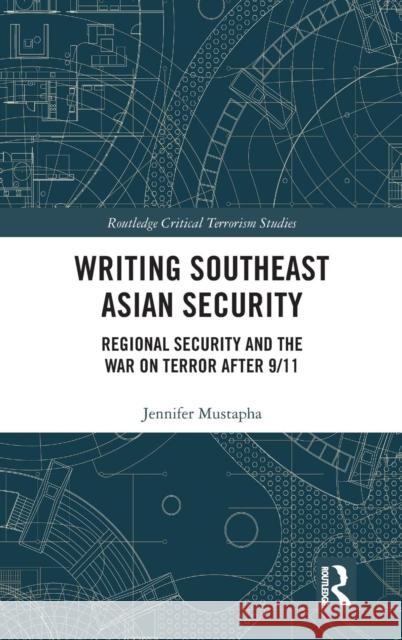Writing Southeast Asian Security: Regional Security and the War on Terror after 9/11 » książka
Writing Southeast Asian Security: Regional Security and the War on Terror after 9/11
ISBN-13: 9781138957787 / Angielski / Twarda / 2019 / 168 str.
Writing Southeast Asian Security: Regional Security and the War on Terror after 9/11
ISBN-13: 9781138957787 / Angielski / Twarda / 2019 / 168 str.
(netto: 718,58 VAT: 5%)
Najniższa cena z 30 dni: 654,86
ok. 16-18 dni roboczych.
Darmowa dostawa!
This book explores the security effects that the US-led 'War on Terror' (WOT) has had on both state and non-state actors in East and Southeast Asia. Utilizing a -weak ontological- critical-security approach, which demands a historically and geographically contingent method of immanent critique, this book examines the effects that terrorism and counter-terrorism, as well as terrorists and state authority have on the production of security and insecurity in the years following September 11th 2001. As a form of immanent critique this book asks - and answers - the following question(s): What can a critical security analysis tell us about the impact that America's WOT has had on both state and non-state actors in East and Southeast Asia? In other words, what does a critical security analysis 'see' about terrorism and counter-terrorism in the region that a mainstream security analysis does not? Hence, in exploring empirical examples in East and Southeast Asia this book demonstrates that forms of insecurity were constructed and/or abetted by the WOT itself, understood as a hegemonic security narrative, and that these forms of insecurity occurred in concert with the practice of traditional forms of state-centric security. The point is not to discount the threat of terrorism as far as it does exist, but rather to ask different questions from those currently being asked so as to reveal some of the ways that the threat of terrorism, along with reactions to it, can manifest itself. Since September 11th 2001, the 'security' issues of different geographic regions have increasingly been framed within the discourses and narratives of the WOT, and East Asia, and Southeast Asia, in particular, is one such region. This analysis is undertaken with the view to help remedy the relative paucity of critical security analyses focused on East Asia and Southeast Asia. In as much as there is a body of literature that addresses security and/or terrorism and/or US foreign policy in the region, most of it is grounded in realism-based approaches that regard the state as the primary subject and object of security. These types of analyses essentialize the threat of 'terrorism' in ways that fail to problematize a state-centric understanding of security, or recognize that insecurity can arise from state-responses to terrorism. They also do not tend to acknowledge the constitutive significance of discourse, nor do they seek to understand the role that discourse plays in the larger security narratives that states and non-state actors both construct and operate within. Further, the vast majority of the wider literature on 'security' in Asia is not actually even focused on terrorism per se, but tends to center around balance-of-power issues and liberal constructivist analyses of institutional norms and the state-centered security architecture of the region. Finally, the book seeks to demonstrate that a deconstructive critical security analysis based in post-structuralist commitments need not be anathema to engagements with pragmatic problems and security issues, nor should it have to preclude the possibility of enacting the politics and ethics that are required to theorize alternative security logics. This book will be of much interest to students of critical terrorism studies, critical security studies, East Asian and Southeast Asian politics, US foreign policy and IR in general.











